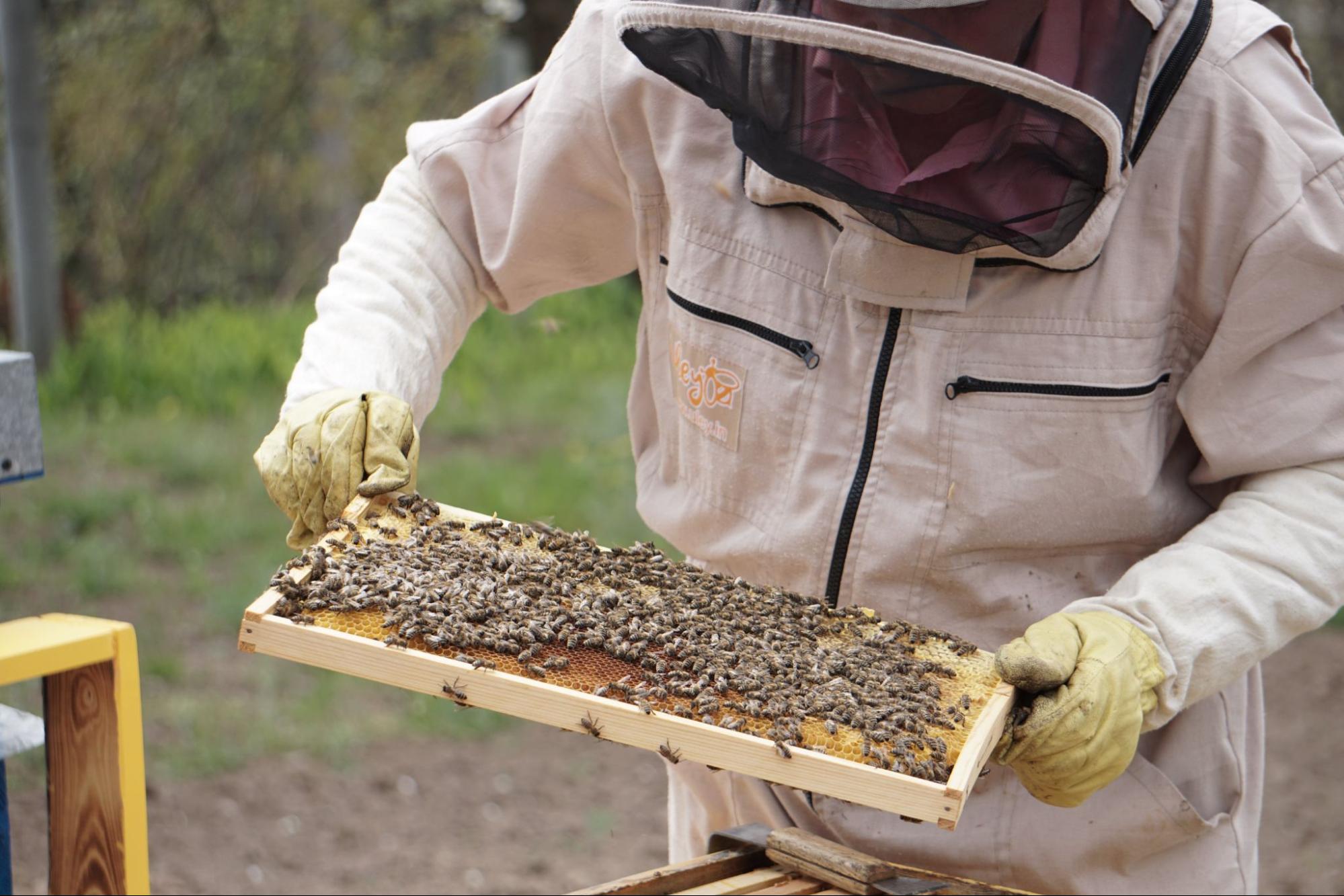Do I Need Beekeeping Insurance?
Wondering if you should get beekeeping insurance? Asking insurance agents about it can be a bit like poking at a hornet’s nest! This question was posed to some of them, and their responses were varied, ambiguous, contradictory, and often confusing.
That’s not the fault of the agents who agreed to be interviewed. They all went out of their way to provide useful information. The problem is that insurance rules and requirements greatly differ across states, insurance companies, and individual situations, providing few clear-cut answers.
Sounds a lot like beekeeping, doesn’t it? So, do you need insurance if you’re a beekeeper? Read on to find the answer.
Commercial Beekeepers
If you’re a commercial beekeeper, insurance is part of doing business. A robust insurance program is essential to protect your business and mitigate risks.
Worker’s compensation insurance plays a key role, covering employees in case of work-related injuries. Vehicle insurance ensures protection for your fleet transporting bees countrywide.
You likely also have some sort of farm policy that covers the agricultural enterprise of honey bees—the equipment, the facilities, and all the things related to the business. In some cases, your insurance might even cover honey loss during a drought. This is a part of the commercial operations of any beekeeping venture.
But what about other beekeepers? Those with just a few hives in their backyards, occasionally selling surplus honey, or selling homemade lip balms, lotions at local farmer’s markets, and candles at holiday fairs?
Some consider leaving their 9-to-5 job to fully pursue beekeeping, but generally, it remains just that—a dream. These beekeepers usually have other sources of income, which fund this fascinating beekeeping hobby.
Considering the expenses involved in beekeeping, the added cost of beekeeper insurance might seem like a burden. But knowing the potential risks, investing in insurance companies is advisable. A robust beekeeper insurance program could save you significant financial distress down the road.
Non-Commercial Beekeepers
Insurance agents will always advocate for insurance. Why not? Insurance companies are in the business of selling it. At the same time, they’re making sure the unexpected doesn’t wipe out your lifestyle, security, or future.
They deal regularly with people who have had their lives disrupted unexpectedly. Through their beekeeper insurance services, they can help provide a safety net for their clients.
So, what unexpected events are we talking about? There’s a long list, but here are a few scenarios:
- You get a call from someone who purchased your honey at the church fundraiser. They claim it made them ill and are sending you the medical bills.
- That cute gap-toothed cousin of your neighbor kid, who is always roaming through your backyard, got stung. Turns out he’s terribly allergic and ended up in the emergency room.
- The lady who begged for comb honey, so much that you cut some specifically for her, said there are worms in it. She wants her money back, and you to pay for the urgent care visits for all the kids who tasted it at the birthday party.
- A swarm of bees lands at the nearby soccer field, disrupting the all-day tournament. While it’d be difficult to prove they were your bees, the organizers, food vendors, and families from a three-county area want their money back and approach you—the only one in the area with bees.
- Great day at the craft fair until someone fell into your booth and injured herself, hitting your display table. She missed lots of work, says her attorney, who contacted you.
- The farm market that sells your extra honey said a customer returned a bottle with rodent hair in it. They’ve pulled the rest of your honey and want to know what to do about future customer complaints.
- The tornado spared your house but took out all six of your hives and their occupants.
- The teenager you hired to cut your grass while you were on vacation got stung badly and went to the ER. You’d told him to not even mow anywhere close to the hives, but he forgot and said he bumped into them.
- A customer of your lip balm said it caused her to break out. She’s been a customer for years and thinks that batch was tainted. You’ve got her medical bills to cover (or the hassle of challenging her about that), and you’re tossing $400 worth of product just in case there is something to her claim.
You’re probably asking, “Really? What are the chances of that happening to me?” But you know, deep down, that everything on that list is plausible. Things like those could happen to any beekeeper.
Unfortunately, in today’s sue-you society, whether someone has a case or not doesn’t matter. They can always get a lawyer and tie you up with legal hassles. This is where the benefits of a good beekeeper insurance coverage manifest.
Beekeeping insurance isn’t just for beekeepers who want to sell their honey or bee products. The legal expenses alone, whether you ever go to court or not, may be enough to justify the cost of an insurance policy.
What about My Homeowner’s Insurance Policy?

The homeowner’s policy may cover some of the possible unexpected situations above. In those cases, your insurance company would probably handle the issue, but perhaps only once. The insurance company reserves the right to drop you if they think your risk level (and therefore theirs) is too high. For example, placing your beehives near a soccer field may be seen as a risk too high to cover.
Considering the seventh scenario, the homeowner’s policy could cover the loss of the hives but not the honeybees. As in any situation involving loss (like scenarios two, four, and eight mentioned earlier), you’d need to weigh the value of the liability against your deductible. Is making a claim truly worth it?
Even if you decide yes, keep in mind that those hives (and not the bees themselves) would most likely only be covered by the actual cash value (ACV). The ACV looks at the cost minus depreciation. If you’ve had your hives for a while, their ACV might not make claiming worth it, especially after paying your deductible.
For the first, third, fifth, sixth, and ninth scenarios, most of the insurance agents we consulted stated that a homeowner’s policy wouldn’t cover these situations. That’s because they fall under business liability. When you transition from beekeeping as a hobby to doing it for profit, your activities are classed as a business and require a business policy.
This is often the case for commercial beekeeping manufacturing businesses. Once you cross this line, your personal property insurance might no longer cover your business-related assets. It’s at this point when it could be beneficial to explore beekeeping insurance services specifically tailored to your business.
When Is Beekeeping a Hobby or Business?

Defining the line between hobbyist and professional in beekeeping can be quite tricky. You might just sell honey when there are extras, but does that categorize it as a business? The distinction is left to your beekeeping insurance company’s interpretation, and such interpretations tend to vary significantly.
One agent notes that their company follows what the Internal Revenue Service (IRS) generally says. When your decisions start being influenced by profit (or expected profit), it becomes a business. If you manage bees and sell excess honey to friends, it’s likely still a hobby.
However, if you’re boosting honey production, plan to sell multiple hives each spring, or earn a considerable annual income from a farmer for placing your hives in his orchards, the beekeeping insurance program becomes non-negotiable.
A business policy would then be required to protect those business assets. This is when beekeeping insurance services come into the picture, providing specialized coverage options.
Another agent’s company classifies it as a business when you make more than $2,500 in gross sales in a year. A third agent’s company defines your efforts as a business when you collect a single dollar. Just like in beekeeping, the same question can lead to different answers.
Craft Fair Coverage
Organizers of craft fairs are increasingly requesting a certificate of liability. This certificate provides coverage for any incidents that might occur within your stall, similar to the fifth scenario above. It does NOT typically cover any products sold from your booth, like in scenario nine.
Most beekeeper insurance companies will write a certificate of liability for you as an extension of your homeowner’s policy and sometimes for an additional small fee. But again, that doesn’t protect you against claims related to faulty products.
On this point, most insurance agents did agree on one thing—if you are selling a product, you need product liability insurance, which is likely not covered in your homeowner’s policy. In addition, you might want to look into beekeeping insurance services to understand if they offer any specific benefits or coverage options tailored to your situation.
What Might Insurance for the “Little Guy” Cost?

There are multiple ways to get insurance for your bee-related activities. A commonly suggested option by agents is a business policy. It’s specifically tailored to the activities and assets of your business and would provide coverage for all the above-mentioned scenarios.
The policy runs between $350 to $600 a year for a base policy that covers up to a million dollars in liability. Your beekeeper insurance program is a crucial component. Naturally, there are various finer details that you should discuss with your insurance agent to help you decide if that’s the right policy for what you do.
Another option is to convert your homeowner’s policy to a commercial farm or ranch policy. This shift creates a new kind of insurance program tailor-made for scenarios farmers, ranch owners, and beekeepers commonly encounter.
This isn’t an option available from all insurance companies, but some do provide it. Costs on this policy vary. For example, if you’re homeowner’s policy costs $1,100 annually, a farm or ranch policy will probably cost a bit less and essentially replace that policy.
General Beekeeping Insurance Advice
In the pursuit of insights, several insurance agents were consulted about beekeeping insurance. These agents provided helpful advice, and they welcome further inquiries. Their contact details can be found below.
Remember, every beekeeping journey is unique, and the beekeeping insurance coverage that works best for you will depend on your circumstances.
A crucial point consistently reinforced by these agents was the importance of transparency with your insurance agent regarding beekeeping activities. It’s better to know exactly what is covered and what isn’t prior to experiencing a loss.
Acknowledgements to the insightful agents who contributed:
1. Lani Basberg, based in Louisville, KY. Email: lani.basberg@gmail.com
2. Michelle Clark from PR Davis Insurance in Portage, MI. Website: www.prdavisins.com
3. Cassidy Popp of Texas Insurance & Financial Services, Inc., located in El Campo, TX. Email: cassidy@txins.com
4. Eric Wheeler from State Farm in Three Rivers, MI. Email: eric.wheeler.lvhy@statefarm.com

